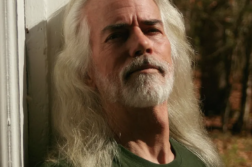Reading these excerpts from an interview done with me a decade ago, I was surprised at how much anger I felt over the state of our purported Gay Nation in 2004. Anger at the current political focus of our national organizations on the issues of marriage and military service, and ever further away from the emphasis of the radical early gay movement on redressing class and race-based grievances. Most of our people are working-class, and many are from minority groups. But you wouldn’t know that from listening to our “leaders” or scanning their agendas.
Sure, I want us to have the same range of rights as other citizens. But I’d rather see us challenging our lethal foreign policy than joining the killing machine that implements it. And I’d rather see us challenging the hoary assumption that monogamous lifetime pair-bonding is the optimal path to human happiness instead of clamoring for its iron embrace—and by implication denigrating singleness or serial partnering.
In general, there seems to be little sympathy in our community for radical analysis—and that worries me. The country is going to hell in a hand basket, and most of us are devoting our energies to assuring mainstream Americans that we’re “just like you,” “just folks,” just as committed to a shallow, callous, and dumbed-down national set of values so perfectly exemplified by our Neanderthal president.
Why aren’t our leaders and organizations loudly condemning imperial arrogance, endemic poverty, joblessness, soul-destroying minimum-wage work, racism, gender inequality? Why are our leading publications far more concerned with floor shows in Las Vegas than with homelessness among the transgendered? Why do we seem so grateful for Will & Grace, when queer people of color go largely unrepresented in the media? Why would we rather be seen as patriots than as truth-tellers? Where is the Gay Liberation Front of 1970 now that we need it?
New York, November 2003
__________________________________________
FROM Summer, 1994
An Interview with Martin Duberman






